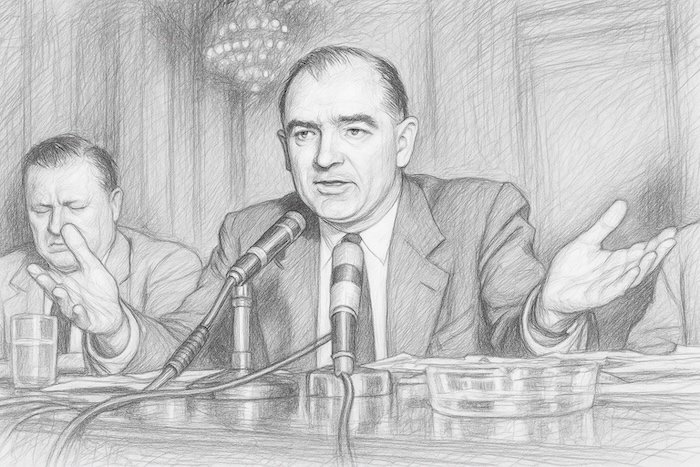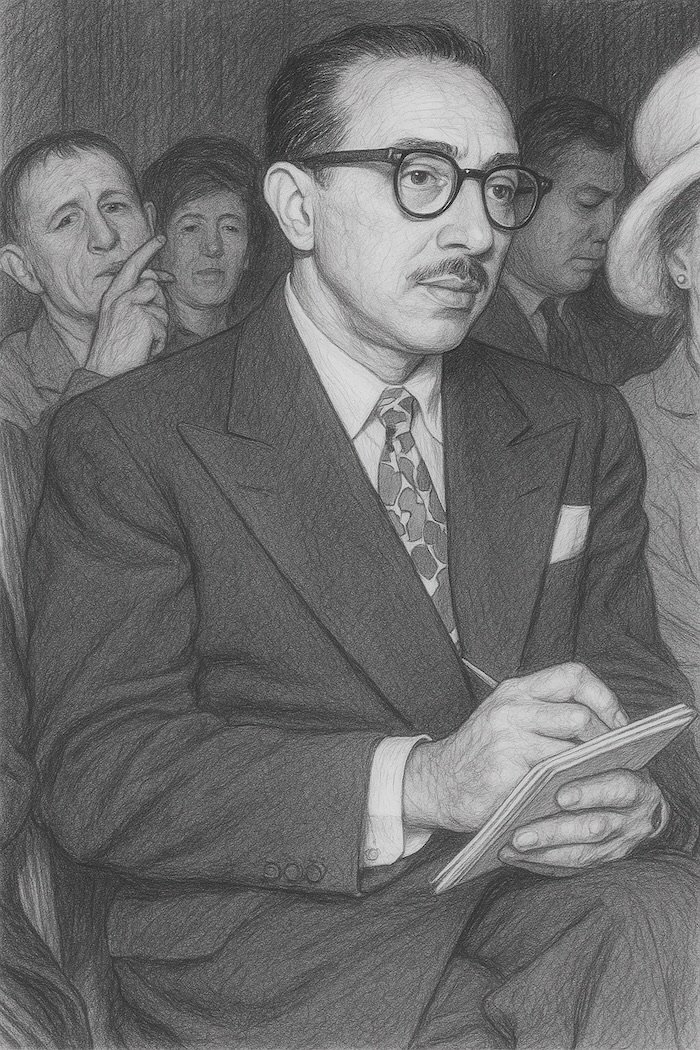The House Un-American Activities Committee: The Day Freedom of Expression Became a Crime
Throughout history, personal stories have been adversely affected by the acts of unjust and misguided governments. Such unjust actions are often justified for a variety of reasons, including an individual’s ethnicity, culture, gender, religion or political beliefs. This last item — political beliefs — sparked a decision that had far-reaching effects on the fabric of American society.
The date is May 26, 1938. The United States remains in a fragile state as a result of the Great Depression as its citizens watch with growing unease storm clouds gathering across Europe and Asia. But on this spring day in 1938, a war of a very different sort was being declared as the United States Congress established the House Un-American Activities Committee — a name that would in time become synonymous with fear, suspicion, and repression of free thinking.
Seeds of Suspicion
The committee’s origin grew from the genuine feelings of anxiety and concern in much of America. In the 1930s, the U.S. was a nation caught between ideologies. The rise of fascism in Europe and the spread of communist influence worldwide had many Americans wondering: who among us might harbor allegiances to a foreign power?
The committee’s original purpose seemed straightforward — to investigate any alleged disloyalty and subversive activities by private citizens, public employees, and organizations suspected of having communist or fascist ties. Reflecting the fears of their constituents, Congress believed they were creating a shield to protect American democracy from enemies within.
But what began as a tool for national security would gradually transform into something far more reaching, far more troubling, and far more destructive to the ideals of personal freedom — the freedom to think, act, and speak freely.
The Evolution of Fear
In its early years, the committee investigated various groups and individuals, though not in a way that garnered much attention. But history has a way of amplifying certain loud voices, and the committee found its loudest voice in Representative Martin Dies Jr. of Texas, who chaired it from 1938 to 1944.
Dies cast a wide net, often making sensational accusations that grabbed headlines but sometimes lacked substantial evidence.
The committee’s approach evolved with the times, and during World War II, it focused on Nazi sympathizers and fascist organizations. But as the war ended and the Cold War began, the committee’s attention shifted decisively toward communist influences.
This is when the committee truly found its dark purpose — and when it began touching the lives of ordinary Americans in ways that would forever change how we think about loyalty, dissent, and freedom.
The post-war years brought us to the era most associated with the committee’s infamy: the reign of Senator Joseph McCarthy and the broader phenomenon we now call McCarthyism. Though McCarthy himself wasn’t directly part of HUAC, the committee became a central stage for the anti-communist fervor that swept the nation.

Pencil Drawing of Senator Joseph McCarthy
Hollywood in the Crosshairs
Perhaps no single episode better illustrates the committee’s reach — and its tragedy — than its investigation of Hollywood. In 1947, the committee turned its attention to the film industry, convinced that communist writers, directors, and actors were using movies to spread subversive propaganda.
The hearings produced the infamous “Hollywood Ten“—writers and directors who refused to answer questions about their political beliefs and associations. These men were cited for contempt of Congress, served prison sentences, and found themselves blacklisted from working in their chosen profession.
Imagine being a screenwriter, someone whose life’s work involved crafting stories that moved audiences, only to find yourself branded as un-American for your political beliefs. The ripple effects were profound: careers destroyed, families torn apart, and an entire industry gripped by fear. Actors, writers, and directors began policing their own associations, their scripts, even their thoughts.

Pencil Drawing of American screenwriter Dalton Trumbo
This wasn’t just about Hollywood, though. The committee’s actions sent a clear message to every American: think carefully about what you believe, what you say, and whom you associate with. The very foundation of free thought and expression — pillars upon which America was built — began to crack under the weight of suspicion.
The Human Cost
The point is, history isn’t just about government policies and committees — it’s about the human stories that unfold in their wake. Teachers lost their jobs for belonging to the wrong organizations. Labor union leaders found themselves under investigation. Even librarians were questioned about the books they chose to stock.
The committee’s influence extended beyond those directly called to testify. It created what we might call a “culture of conformity” — a climate where Americans began to self-censor, to avoid controversial associations, to keep their political thoughts private. In trying to protect American values, the committee was inadvertently changing what it meant to be American.
The Reckoning
Thankfully, history has a way of (eventually) correcting course, though often at great cost. By the late 1950s and early 1960s, public opinion began to turn against the committee’s methods. The excesses became too obvious to ignore, the damage to innocent lives too severe to justify.
The committee existed until 1975, but its influence waned significantly. Court decisions began to protect the rights of those called before congressional committees. Public sentiment shifted toward valuing civil liberties over security paranoia. The very people the committee had targeted — intellectuals, artists, activists — began to speak out about their experiences.
The Long Shadow
Looking back at the House Un-American Activities Committee, we can now see it as a cautionary tale about the dangers of letting fear override our fundamental values. Historians largely view the committee’s actions as a dark chapter in American history — a time when the pursuit of security led to the trampling of civil liberties.
But here’s what makes this story particularly relevant to our times: the underlying tensions that created HUAC haven’t disappeared. Every generation faces the challenge of balancing security with freedom, of protecting society while preserving individual rights. The specific threats may change — terrorism, cyber warfare, foreign interference — but the fundamental questions remain the same.
Lessons for Today
We can only speculate how history would have unfolded had the House Un-American Activities Committee never been established. Would American society have been more open, more tolerant of dissent, more willing to engage with uncomfortable ideas? Would the civil rights movement, the anti-war protests, or the explosion of artistic expression have happened sooner?
As we navigate our own complex times, with our own fears and uncertainties, the story of HUAC whispers to us across the decades: be vigilant not just against external threats, but against the erosion of the very values that make our society worth protecting. For in the end, the greatest danger to any democracy may not come from its enemies, but from the compromises it makes with its own principles in the name of security.
Even though the House Un-American Activities Committee was disbanded nearly fifty years ago, its shadow still falls across American life, and its basic premise of persecuting people for their beliefs has seen a resurgence in America.
Back to you…
How has your personal story been influenced by some form of discrimination or persecution? Have you ever felt that it wasn’t safe to express your true feelings for fear that you would have to pay a price — a price so high that you remained silent? Do you live in a country — or have lived in a country — that is repressing freedom of thought? Sharing such stories is vital if we want personal freedom to thrive.
◆
contact me to discuss your storytelling goals!
◆
Subscribe to the newsletter for the latest updates!
Copyright Storytelling with Impact® – All rights reserved
